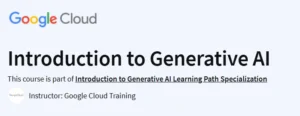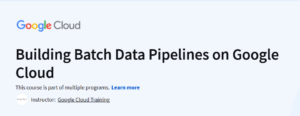What will you learn in Mastering Angular Reactive Forms Course
Gain a complete working knowledge of Angular Reactive Forms’ core building blocks:
FormControl,FormGroup, andFormArrayLeverage built-in validators and craft custom (including asynchronous) validators for maximum flexibility
Effortlessly add, remove, and manage form controls dynamically, including cross-field and conditional validation rules
Adopt strongly-typed form APIs introduced in Angular v14 for compile-time safety
Generate fully dynamic, server-driven forms by consuming configuration objects at runtime
Program Overview
Module 1: Getting Started with Reactive Forms
⏳ 45 minutes
Topics: Importing and configuring
ReactiveFormsModule; creating basicFormControlandFormGroupinstancesHands-on: Build your first reactive form with name/email fields and display validation status in the template
Module 2: Validation Essentials
⏳ 1 hour
Topics: Using built-in validators (
required,minLength, etc.), writing custom synchronous and asynchronous validatorsHands-on: Implement a password strength validator and an async username-availability check
Module 3: Dynamic Controls & Cross-Field Rules
⏳ 1 hour
Topics: Adding/removing controls and groups at runtime; enforcing cross-field validations (e.g., password match)
Hands-on: Create a form that lets users add an arbitrary number of “alternate email” fields with validation
Module 4: Strongly-Typed Reactive Forms
⏳ 45 minutes
Topics: Angular v14 typed forms API,
FormGroup<T>andFormControl<T>usage for type-safe valuesHands-on: Refactor an untyped form to a fully typed form, catching value mismatches at compile time
Module 5: Server-Driven Dynamic Forms
⏳ 1.5 hours
Topics: Designing JSON-based form schemas, mapping schema to form controls/groups, rendering form dynamically
Hands-on: Consume a sample JSON config to generate a dynamic survey form with mixed control types
Module 6: Testing Reactive Forms
⏳ 30 minutes
Topics: Writing unit tests for form initialization, validation logic, and dynamic behavior using
TestBedHands-on: Write Jasmine/Karma tests for both built-in and custom validators to ensure form robustness
Get certificate
Job Outlook
Angular Developer / Front-End Engineer: $80,000–$130,000/year — build dynamic, scalable web apps with Angular’s Reactive Forms
UI Developer: $75,000–$120,000/year — specialize in form-intensive interfaces for enterprise and consumer applications
Full-Stack JavaScript Engineer: $85,000–$140,000/year — integrate server-driven form generation in modern MEAN/MERN stacks
Expertise in Reactive Forms is critical for roles in fintech, healthcare portals, e-commerce platforms, and SaaS applications.
Specification: Mastering Angular Reactive Forms
|
FAQs
- No prior ML experience required; Python familiarity is helpful.
- Covers NumPy, pandas, and scikit-learn for ML workflows.
- Teaches end-to-end model building: preprocessing, training, and evaluation.
- Includes hands-on projects with real datasets.
- Prepares learners for entry-level ML and data analysis tasks.
- Linear and logistic regression implementation.
- Decision trees, random forests, SVMs, K-NN, and ensemble methods.
- Unsupervised learning with K-Means and PCA.
- Feature engineering, scaling, and encoding techniques.
- Evaluate models with metrics like accuracy, ROC AUC, MAE, and MSE.
- End-to-end pipelines: data ingestion, preprocessing, model training.
- Projects include housing price prediction and medical diagnosis classification.
- Hyperparameter tuning with GridSearchCV and randomized search.
- Ensemble learning projects with AdaBoost, XGBoost, and stacking.
- Wrap models in basic Flask APIs for real-time inference.
- Portfolio-ready projects for job applications.
- Learn to preprocess, train, evaluate, and deploy models.
- Prepare for roles like ML Engineer, Data Analyst, and Data Scientist.
- Understand best practices for reproducible ML workflows.
- Apply ML to real-world business and technical problems.
- Emphasis on scikit-learn and Python ML ecosystem.
- Covers regression, classification, clustering, and ensemble techniques.
- Limited coverage of deep learning frameworks.
- Focus on model evaluation, pipelines, and deployment readiness.
- Ideal for beginners or those seeking practical ML without deep learning complexity.





